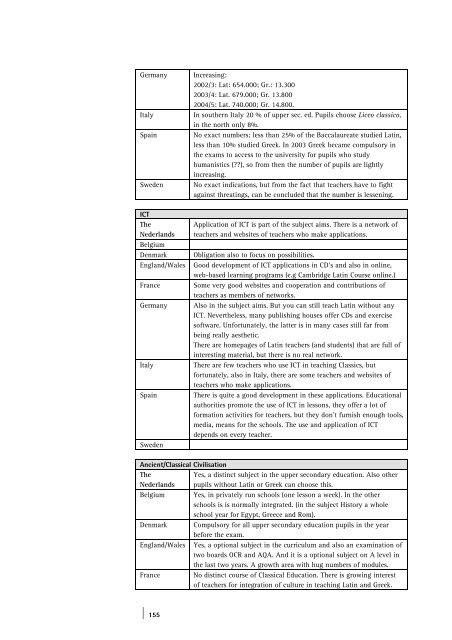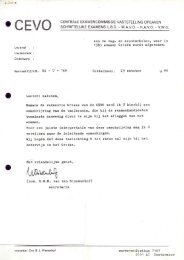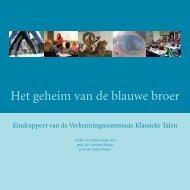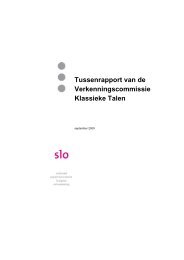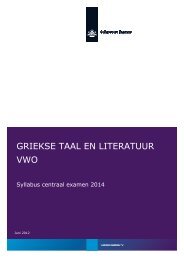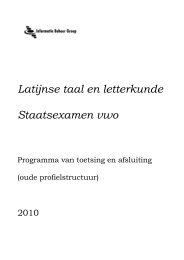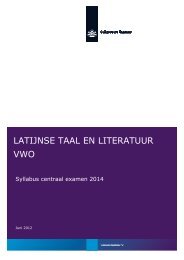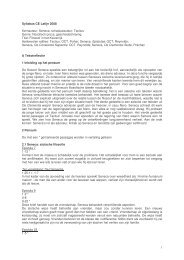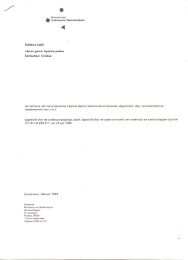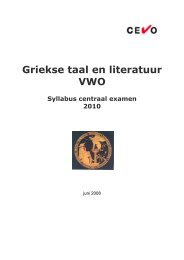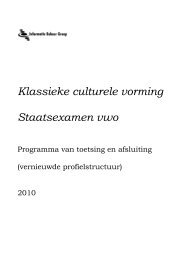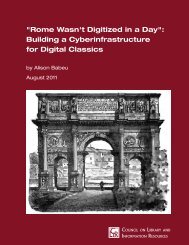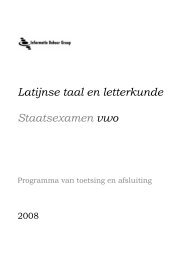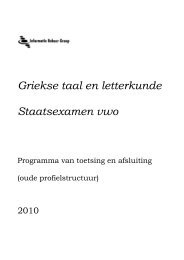You also want an ePaper? Increase the reach of your titles
YUMPU automatically turns print PDFs into web optimized ePapers that Google loves.
Germany<br />
Italy<br />
Spain<br />
Sweden<br />
ICT<br />
The<br />
Nederlands<br />
Belgium<br />
Denmark<br />
England/Wales<br />
France<br />
Germany<br />
Italy<br />
Spain<br />
Sweden<br />
Increasing:<br />
2002/3: Lat: 654.000; Gr.: 13.300<br />
2003/4: Lat. 679.000; Gr. 13.800<br />
2004/5: Lat. 740.000; Gr. 14.800.<br />
In southern Italy 20 % of upper sec. ed. Pupils choose Liceo classico,<br />
in the north only 8%.<br />
No exact numbers; less than 25% of the Baccalaureate studied Latin,<br />
less than 10% studied Greek. In 2003 Greek became compulsory in<br />
the exams to access to the university for pupils who study<br />
humanistics (), so from then the number of pupils are lightly<br />
increasing.<br />
No exact indications, but from the fact that teachers have to fight<br />
against threatings, can be concluded that the number is lessening.<br />
Application of ICT is part of the subject aims. There is a network of<br />
teachers and websites of teachers who make applications.<br />
Obligation also to focus on possibilities.<br />
Good development of ICT applications in CD’s and also in online,<br />
web-based learning programs (e.g Cambridge Latin Course online.)<br />
Some very good websites and cooperation and contributions of<br />
teachers as members of networks.<br />
Also in the subject aims. But you can still teach Latin without any<br />
ICT. Nevertheless, many publishing houses offer CDs and exercise<br />
software. Unfortunately, the latter is in many cases still far from<br />
being really aesthetic.<br />
There are homepages of Latin teachers (and students) that are full of<br />
interesting material, but there is no real network.<br />
There are few teachers who use ICT in teaching Classics, but<br />
fortunately, also in Italy, there are some teachers and websites of<br />
teachers who make applications.<br />
There is quite a good development in these applications. Educational<br />
authorities promote the use of ICT in lessons, they offer a lot of<br />
formation activities for teachers, but they don’t furnish enough tools,<br />
media, means for the schools. The use and application of ICT<br />
depends on every teacher.<br />
Ancient/Classical Civilisation<br />
The<br />
Yes, a distinct subject in the upper secondary education. Also other<br />
Nederlands pupils without Latin or Greek can choose this.<br />
Belgium Yes, in privately run schools (one lesson a week). In the other<br />
schools is is normally integrated. (in the subject History a whole<br />
school year for Egypt, Greece and Rom).<br />
Denmark Compulsory for all upper secondary education pupils in the year<br />
before the exam.<br />
England/Wales Yes, a optional subject in the curriculum and also an examination of<br />
two boards OCR and AQA. And it is a optional subject on A level in<br />
the last two years. A growth area with hug numbers of modules.<br />
France No distinct course of Classical Education. There is growing interest<br />
of teachers for integration of culture in teaching Latin and Greek.<br />
⏐ 155


